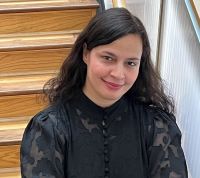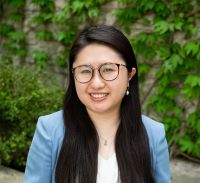2022 Recipients: Advancing Competency-based Medical Education across the Continuum
Marghalara Rashid, PhD

Marghalara Rashid, PhD
Educational scientist, Department of Pediatrics, Faculty of Medicine and Dentistry, College of Health Sciences, University of Alberta
Residency training programs to support residents working in Indigenous communities: A multi-centre study
This study will examine what residency training programs can do to support residents in gaining the knowledge, skills and experiences needed to work in Indigenous communities. This work will make an important contribution to improving Indigenous community health and postgraduate medical education within our institution and across other faculties of medicine in Canada. This work will add new dimensions to our understanding of what works and where there are challenges in our residency programs. It prompts participants to consider what it means to be successful while working in Indigenous communities. The project is a collaboration between three research-intensive universities: the University of Alberta, the University of Calgary and the University of Manitoba. This collaborative work will foster greater knowledge sharing that will inform our residency training programs and our response to the Calls to Action from the Truth and Reconciliation Commission of Canada.
Wendy Wen Qing Ye, MD, MSc

Wendy Wen Qing Ye, MD, MSc
PGY4 Resident Physician, Nephrology, Department of Medicine, University of Toronto
Understanding the evolution of professionalism in medical education: The role of self-identity in perceptions of professionalism
Professionalism is an integral component of medical education. Unprofessional behaviour during medical training correlates with future disciplinary action by regulatory bodies; thus, it is essential to identify and remediate unprofessional behaviours during training. However, current professionalism definitions lack nuance around diversity in physician cultural, racial/ethnic, generational and gender identity, and may not adequately reflect the diverse population of practising physicians and medical trainees — or, importantly, the patients they encounter. There are current calls to re-examine professionalism policies and practices in medicine. Our study aims to understand the influence of residents’ cultural, racial, and gender identities on their experiences and perceptions of professionalism in medical training. Our research will identify gaps in current definitions of professionalism and aspects of professionalism that residents perceive as challenging or suppressing their personal, intersecting identities as individuals and physicians.